Cards In This Set
| Front | Back |
 Definition by St Teresa of Avila "God establishes himself in the interior of this soul in such a way, that when I return to myself, it is wholly impossible for me to doubt that I have been in God and God in me"" |
Types of religious experience according to Caroline Franks Davis in 'The Evidential force of Religious Experience'
Awareness Experience - Observing God through his creations (Design Argument) Quasi-Sensory Experience - A vision or inner experience of God Numinous Experience - Encountering the holiness of God Regenerative Experience- A conversion experience (eg. St Paul's conversion on the road to Demascus) Interpretive Experience - Having ones prayers answered Mystical Experience- A sense of ultimate reality Revelatory Experience - Receiving enlightenment and knowledge |
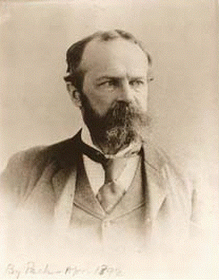 William James identified four ways of identifying mystical experience Ineffability - inability to be explained through words as it can only be felt consequently only those who feel it can understand. Noetic Quality - communication of hidden truths, one gains enlightenment Transiency- short lived Passivity - the receivers feels as though they are being controlled by a higher power |
Andrew Greeley in his works Sociology of the Paranormal believed there to be six common themes in religious experience
-A feeling of deep, inner peace -Optimism in the future -A need to help others -A belief love is at the center of humanity -A sense of joy -Emotional intensity |
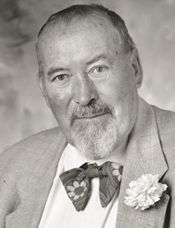 Definition by Ninian Smart in his works 'The Religious Experience of Mankind' "A Religious experience involves some kind of perception of the invisible world, or a perception, that some visible person or thing is a manifestation of the invisible world" |
Paul Tillich in Systematic Theology -
Religious experience is a feeling of ultimate concern, a feeling that demands a decisive decision from the one receiving it. The News Dictionary of Theology held a similar sentiment - "Religious experience without religious reflection is blind, every claim to an experience of God requires examination...Christianity has no concept of religious experience that do not have doctrinal or ethical consequences or of experience of God that do not involve human response" |
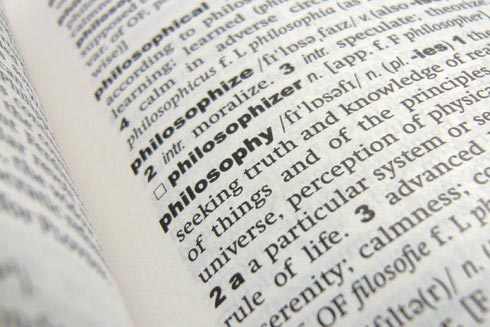 Religious Experience Vocabulary A posteriori - Knowledge gained through observation, experience of the natural world Deductive - Premises which add up to a conclusion Direct- personal experience of God Indirect - experiencing God through his creations Private - Experience by an individual Corporate- Experienced by a group Monist Experience - An individual becomes aware of the ones-ness of all things, feeling he/she is in union with the divine (Hinduism) Numinous Experience - The individual becomes aware of the greatness of God and their servility in comparison. |
Objectivist View - If religious experience is true it acts as evidence for a God who exists independently outside the human mind
Subjectivist View - The actions of the individual who claimed to have a religious experience is all that matters, if they believe they encountered God, they encountered God and if it leads to them transforming their lives for the better who are we to deny that. Veridical - The experience is a genuine encounter of something which has physical existence. |
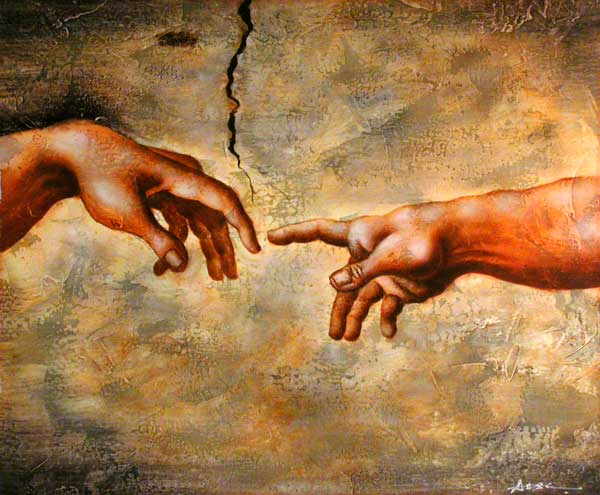 The Argument for God- Premise One - If an entity is experienced, then it must exist. Premise Two - God is the sort of being that it is possible to experience or encounter directly Premise Three- People claim to have experienced God directly Conclusion - God exists |
Challenging Premise Two
Kant, Aquinas and Maimonides are believers in God, however, the only way in which we can show his existence is in observing the world around us. Direct contact with God is not possible as he surpasses the confines of our intelligence and understanding. To believe otherwise, according to Aquinas, is undermining the ability of God which is blasphemous Reply : Brian Davis in 'An Introduction to the Philosophy of Religion' argued that if it was plausible God existed as a physical entity outside the mind of man it was equally plausible for humanity to encounter him. It is only when we deny the existence of God do deny the possibility of experiencing him. |
|
Challenging Premise Three through questioning the validity of another's testimony
- We have knowledge of human nature, we do not have knowledge of God's therefore how can we be sure we have encountered God, there is nothing in the universe to compare it to? -The individual who made the claim may have been mistaking a psychological experience with an experience of God -The individual may be under the influence of drugs, hunger or exhaustion. -The individual may be under pressure to witness the site of God if they belong to a religious community and the only way of securing their place or even elevating it, is to encounter the almighty. -The individual maybe lying |
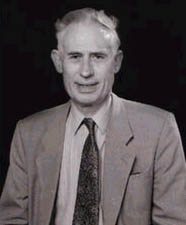 Richard Swinburne's Principle of Credulity - If a subject claims to have witnessed X the chances are they probably have. If we were unable to translate our perceptions or unable to perceive at all, we would not last very long. |
|
Swinburne's Principle of Testimony -
When an individual retells their experiences the experience probably are veridical. Most of our beliefs about the world are based on the perception of others. What gives religious experience greater weight is others of a similar nature coming to light. If we did not know where apples came from and one individual came forth and said they come from trees we would be suspicious, however, if ten thousand people then confirmed the individuals initial predicate it would give it extra weight. |
Richard Swinburne believed one of the best ways to test the validity of ones claims is to see if their encounter transforms their lives. Williams James supported this idea in 'The Varieties of Religious Experience' -
"The real witness of the spirit to the second birth is to be found only in the disposition of the genuine child of God. The permanently patient heart, the love of self eradicated" |
|
Swinburne does put in place exceptions if ...
-The individual has a faulty perception caused through damage to the brain or mind altering drugs such as LSD -The individual who claims to witness God cannot reproduce his claim in similar circumstances (Contentious - Pentecost/ the ability of all those present to speak in every tongue in order to deliver the message of God, however, in a similar gathering this would not be guaranteed to happen) -An individual with insufficient knowledge of the Lord and his creation cannot claim to have encountered him (St Paul's Conversion!) One could not identify a person in a crowd if they did not have a description of what they looked like or had otherwise met them similarly one cannot claim to see God if they know nothing of him. Then as the ontological argument states in order to deny God you first must have an idea of what he is - an omniscient, omnipresent and omni-benevolent being. -The object the person claims to have perceived, based on other evidence, probably wasn't present. If I claim to of seen my friend walking down the school corridor yet no one else did, arguably she did not walk down the corridor. (This can be refuted for individuals such as Teresa of Avila who experienced Jesus sitting beside her at the breakfast table could not have her visions confirmed by others as they did not see him, yet her religious experience does not loose worth) -Alternative explanations for the individuals experience. However, God is omnipresent therefore he is in every living entity, controlling everything. The alternative explanation may be triggered therefore by God. |
 Responses - Wayne Proudfoot Argues the experiences we claim to be driven by God can be explained by ones culture and history. An example of this could be the initiation of aboriginal males in Australia. To enter manhood the boys have to stare death in the face, to do this the entire tribe create a theatrical performance of deception convincing the boys they have passed through to the afterlife. This includes the 'kidnapping' of the boys by 'demons' who force them into a semi conscience state through food and sleep deprivation. When the final act of initiation takes place the circumcision and meeting of spouse, the boys are then reborn. To them the event was very real, they witnessed first hand death, of course the observer knows this was not the case. |
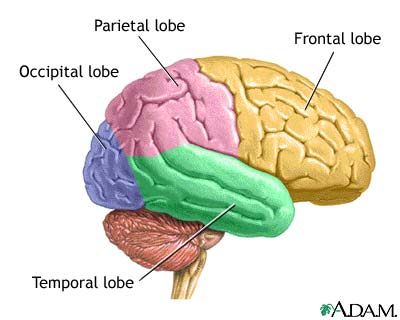 Responses - Michael Martin- Psychological Hypothesis Religious experience are caused not by external realities but by the workings of peoples minds. Just as drugs, alcohol, mental illness and sleep deprivation doesn't provide a coherent account of reality neither does religious experience. |
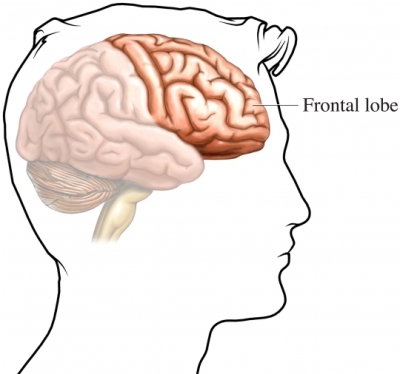 Responses- Evan Fales Believed if we 'knew' the cause of the experience it could shape the way in which we perceive the experience- self deception. Therefore everything needs to be cross referenced, if I were to say the refrigerator is white your mind would undergo subliminal information processing before concluding I was right for you have encountered many refrigerators as have the people you know and can therefore vouch my account of their color - the same cannot be done for God for not enough people have had religious experiences. Evan Fales believed religious experiences lacked validity for they are used as tools by mystics to raise their position within a group or to raise the groups position within society. There are alternative causes too for mystical experiences such as micro-seizures of the temporal lobes of the brain. |
 Responses - Micheal Martin's Negative Principle of Credulity If experiencing God is good grounds for belief in his existence surely experience in the absence of God is good grounds for belief in his non existence. Davies responds by saying just because one group claim to experience the absence of God doesn't mean another group which experienced his presence are wrong. Two groups maybe hunting the same animal, one may catch it another may not even see it, doesn't mean the animal didn't exist to begin with. Kierkegaard - Absence of Evidence is not Evidence of Absence |
 Responses - Teresa of Avila- four means of testing the validity of an experience - The fruits of the experience (actions, personality, peace of mind -The vividness of the memory -Conformity to the scriptures -Validation by the mystics confessor However Fales suggests that the authority of Scriptures rests on the authority of the revelations on which it is based. |
 Responses- Science -The God helmet When the right hemisphere of the brain, the seat of emotion, is stimulated in the cerebral region presumed to control notions of self, and then the left hemisphere, the seat of language, is called upon to make sense of this nonexistent entity, the mind generates a ‘sensed presence.’” - A natural explanation for religious experience as appose to the supernatural. |
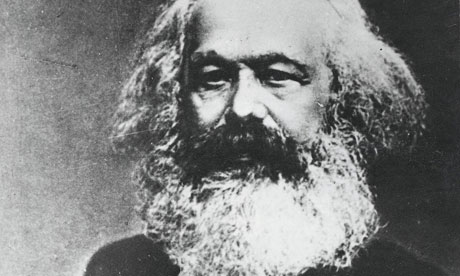 Responses - Religion - An Opium of the People Karl Marx was writing at the time of the industrial revolution when thousands of families were moving from the countries to the cities in search for work. The cites began to swell causing living conditions and poverty to increase. The work force the proletariat lived a life of toil whilst their masters, the bourgeoisie, lived in comfort. Marx believed one of the ways the bourgeoisie dissuaded revolution was through alienation - alienating the people from their humanity. One of the tools, was religion which told people if they endured the cruelties of this life, if they were submissive they would in turn be rewarded in heaven. "The rich man in his castle, the poor man at his gate He made them, high or lowly, and ordered his estate" - implying ones position in society was ordained by God and therefore should not be altered. Religious experience therefore were false claims formulated to give additional weigh to the concept of God. |
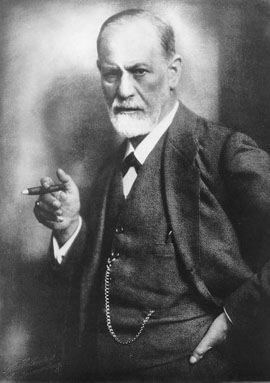 Responses - The Future of an Illusion - Freud Freud believed religion was created by humanity to give a sense of protection. He suggested that this need for protection was a feeling that originated from childhood and at that time was fulfilled by the father. It is for this reason God is viewed as a father figure. Religious experience is an illusion used to strengthen the claims of religion. These illusions aren't errors but skewed perceptions of reality arsing from the desire for something for example Christopher Columbus believed he had discovered India when it was America. Freud concluded religious need was the product of an unhealthy mind. If a person was fulfilled in life, they would have no need of the sense of protection offered by religion. |
 |



